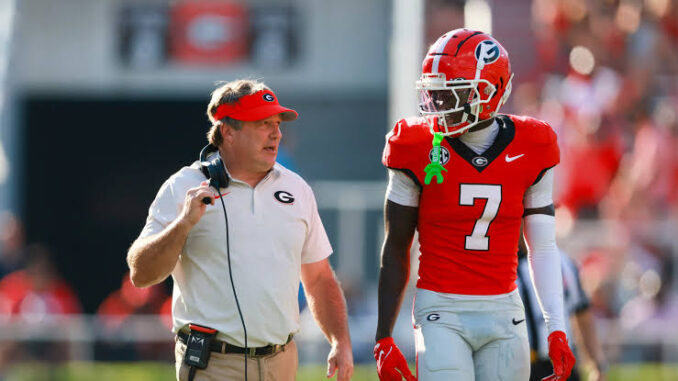
The University of Georgia has announced a change in the kickoff time for its upcoming non-conference matchup against Austin Peay, moving the game up from its originally scheduled slot. The decision comes as part of adjustments surrounding the team’s early-season schedule and is aimed at ensuring a smoother game-day experience for players, staff, and fans. For Bulldogs supporters, this shift might seem minor on the surface, but it carries broader implications for preparation, attendance, and the overall atmosphere inside Sanford Stadium.
Georgia, the defending powerhouse in college football, is no stranger to schedule adjustments. With television contracts, weather considerations, and logistical concerns always at play, kickoff times often change throughout the season. In this case, the game against Austin Peay—while not expected to be one of the Bulldogs’ most challenging contests—offers the program a chance to fine-tune details before diving into the heart of its Southeastern Conference (SEC) campaign. Moving the game time up means an earlier kickoff, allowing Georgia coaches to manage recovery and preparation windows more effectively as they look ahead to tougher competition.
From a fan perspective, the shift also plays an important role. Early kickoffs can create a unique energy in Athens, where tailgating traditions are among the most celebrated in college football. While some may prefer the buzz of a primetime showdown, others appreciate the convenience of an earlier start, especially during the warmer months when late afternoon and evening temperatures can be taxing. For families and alumni traveling into Athens, an earlier kickoff also provides the chance to enjoy the game and still make the return trip home before nightfall.
For Austin Peay, the change is equally impactful. Programs from the Football Championship Subdivision (FCS) often circle dates like this one on the calendar, as games against SEC giants are both high-profile and financially significant. The Governors will now have to adjust their travel, warmup routines, and overall timing to accommodate the earlier slot. While the task of taking on Georgia remains daunting, an earlier game could affect rhythm and conditioning—particularly when facing a deeper and more physical roster like the Bulldogs’.
On the field, Georgia is expected to use this game to showcase depth and give younger players opportunities to gain valuable experience. Non-conference matchups of this nature typically serve as platforms for testing new formations, rotating personnel, and sharpening execution ahead of grueling SEC schedules. With an earlier kickoff, head coach Kirby Smart and his staff may also lean into a more businesslike approach, focusing less on spectacle and more on efficiency.
Television partners also play a role in decisions like this. Networks often request adjustments to maximize viewership across different time slots, and Georgia’s standing as one of college football’s marquee programs means broadcasters are eager to feature them prominently.
By moving the Austin Peay game earlier, both schools benefit from broader exposure, while fans nationwide can catch the Bulldogs in action without conflicts from later primetime games.
Ultimately, the time change reflects the flexibility and adaptability required in modern college football scheduling. For Georgia, it is a small but strategic adjustment that could pay dividends in preparation, fan experience, and national visibility.
As kickoff approaches, Sanford Stadium will once again be buzzing, whether early in the afternoon or late into the evening. What remains unchanged is the expectation: Georgia will take the field ready to assert its dominance, and Austin Peay will look to make the most of its moment under the SEC spotlight.
Be the first to comment